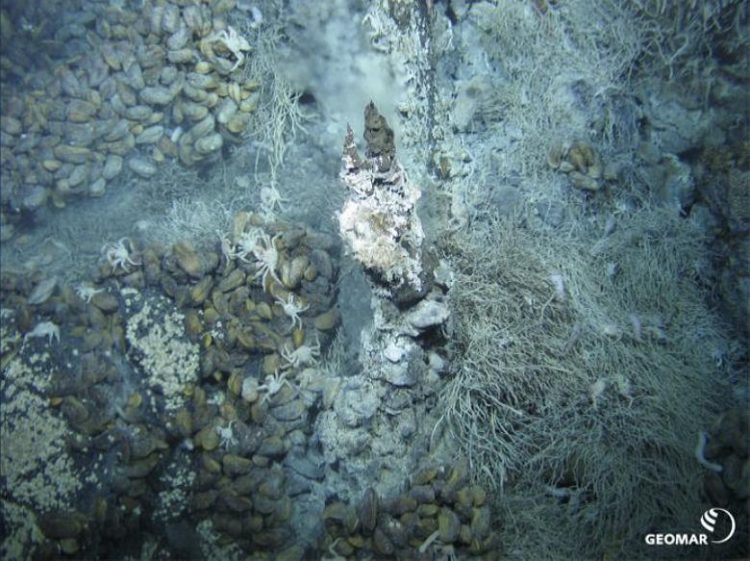Locating natural resources in the deep sea – easily and eco-friendly

Massive sulfides photo: GEOMAR
With this reliable and cost-efficient system, mineral and raw material contents of large areas shall be mapped in the future. Besides reduced costs, this technology allows for less impact to the environment.
Combining AUV and LIBS
Two technologies are combined to achieve this: an autonomous underwater vehicle (AUV) for the 3D mapping of the sea ground is equipped with a laser-based element-analyzing capability. This unit makes it possible to analyze soil samples by laser-induced plasma spectroscopy (LIBS). Here, a compact, autonomous system is needed that is, in addition, robust enough to withstand the pressure in the deep sea.
Knowledge from aerospace for the deep sea
Both the Laser Development and the Materials and Processes Department of the LZH are using knowledge from the ExoMARS project to develop the system. For the space mission, a small, ultralight laser system was developed that shall enable LIBS-based analyses on the Mars. For the use in the deep sea, the weight of the laser system is less important. However, here too a very compact system with a high pulse energy is demanded.
The system is being jointly developed by scientists from the LZH and neoLASE GmbH, an LZH spin-off company. The employees of this company contribute their expertise for the electronics and control of the laser system. The other partners add the necessary competencies in the fields of oceanography, 3D cartography and biogeochemistry.
The „ROBotic sUbSea exploration Technologies – ROBUST“ project is coordinated by The Welding Institute (TWI Ltd.) in Great Britain. Besides the LZH and neoLASE GmbH, the following partners are involved: CGG Veritas Consultants Ltd. (France), ALS Marine Consultants Ltd. (Cyprus), GEOMAR Helmholtz Centre for Ocean Research (Germany), Graal Tech S.r.l. (Italy), Università Degli Studi Di Genova (Italy), Coronis Computing S.L. (Spain).
At the Hannover Messe, the LZH is presenting current research results on underwater laser cutting. This process too is being developed by the scientists of the Machines and Controls Group in the Materials and Processes Department of the LZH. Visit us at the Pavilion of the State of Lower Saxony in hall 2, stand A08!
Media Contact
More Information:
http://www.lzh.de/All latest news from the category: Machine Engineering
Machine engineering is one of Germany’s key industries. The importance of this segment has led to the creation of new university degree programs in fields such as production and logistics, process engineering, vehicle/automotive engineering, production engineering and aerospace engineering among others.
innovations-report offers informative reports and articles covering technologies such as automation, motion, power train, energy, conveyor, plastics, lightweight construction, logistics/warehousing, measurement systems, machine tools and control engineering.
Newest articles

Properties of new materials for microchips
… can now be measured well. Reseachers of Delft University of Technology demonstrated measuring performance properties of ultrathin silicon membranes. Making ever smaller and more powerful chips requires new ultrathin…

Floating solar’s potential
… to support sustainable development by addressing climate, water, and energy goals holistically. A new study published this week in Nature Energy raises the potential for floating solar photovoltaics (FPV)…

Skyrmions move at record speeds
… a step towards the computing of the future. An international research team led by scientists from the CNRS1 has discovered that the magnetic nanobubbles2 known as skyrmions can be…





















